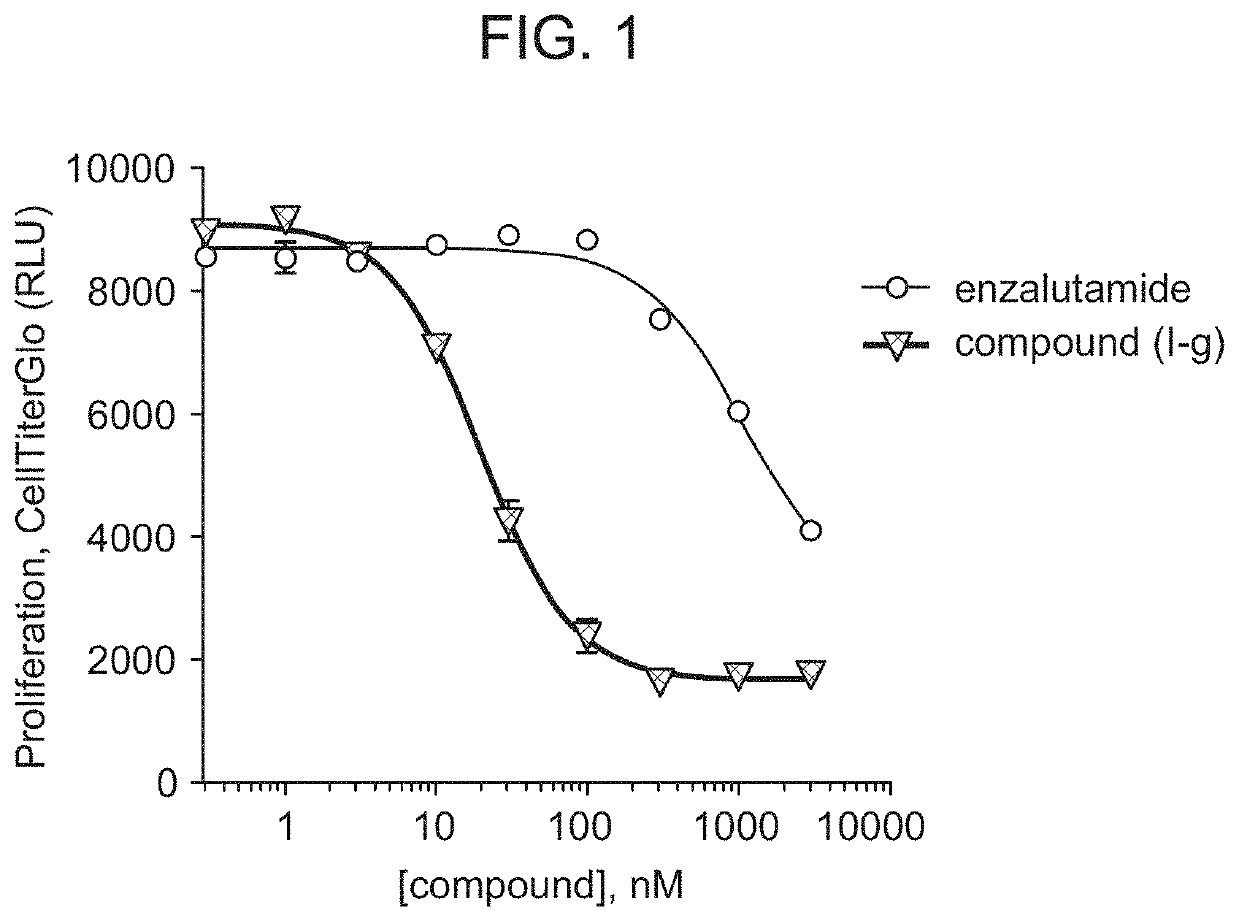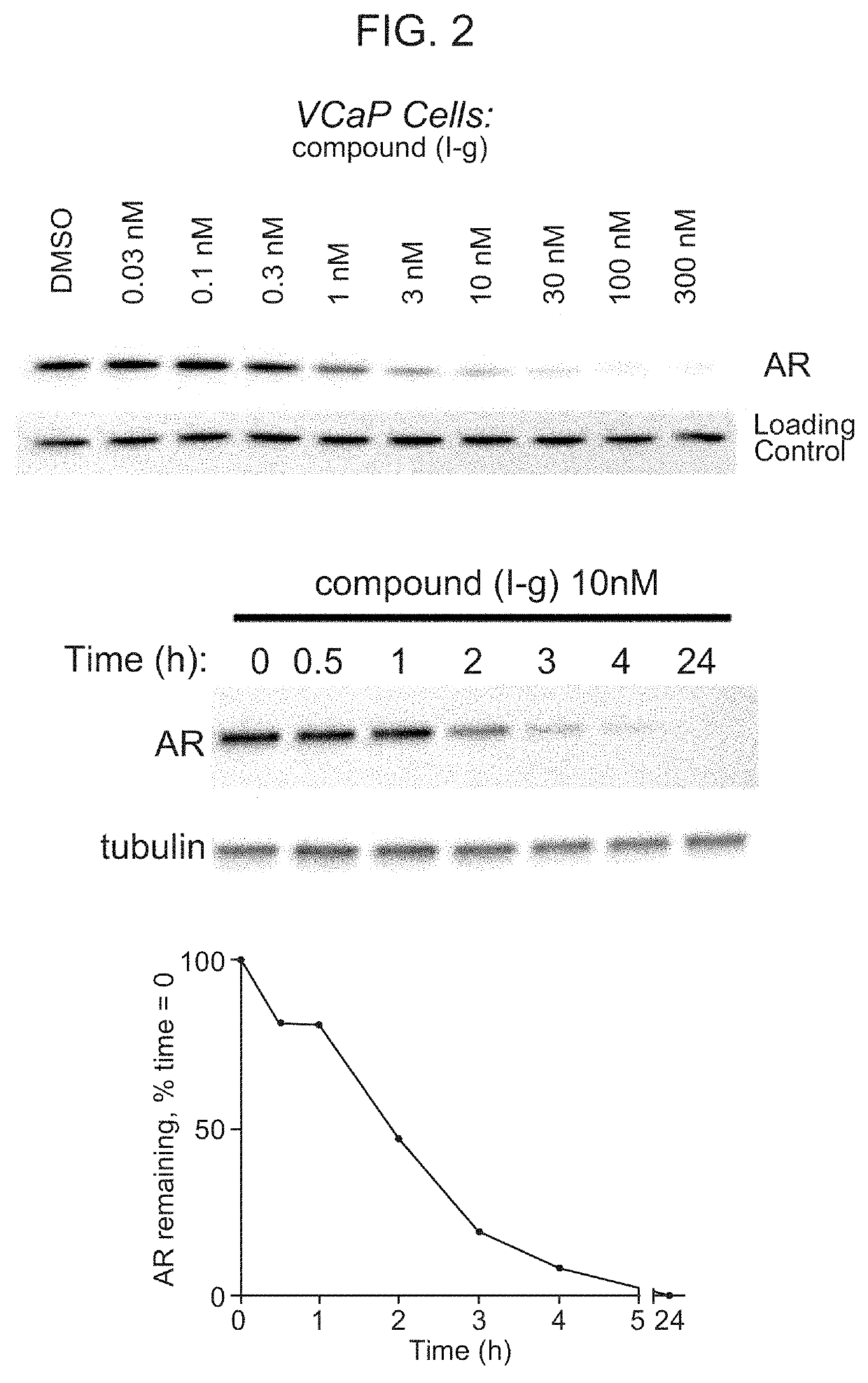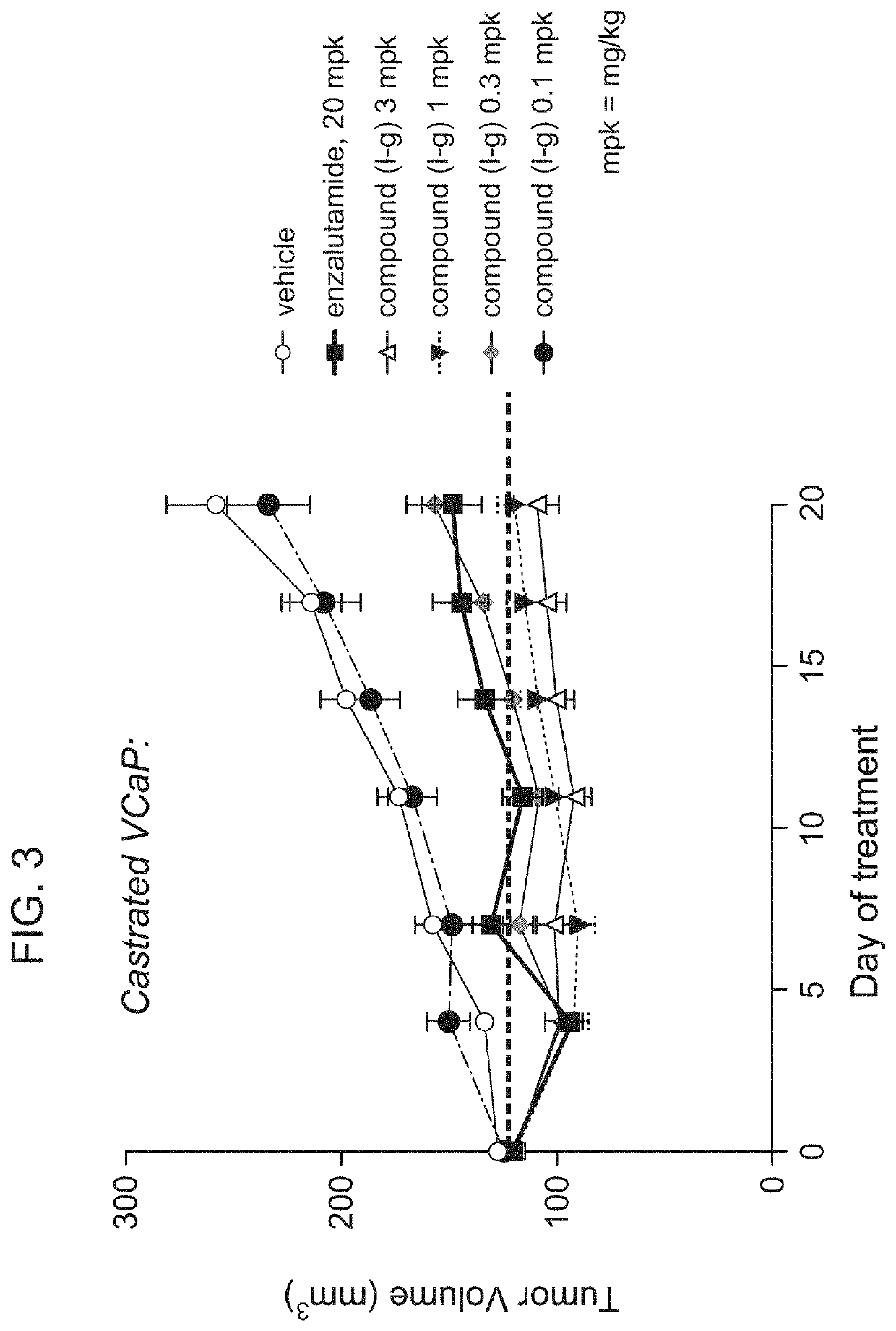Methods of treating prostate cancer
a prostate cancer and hormone receptor technology, applied in the field of prostate cancer treatment methods, can solve the problems of inability to target and modulate certain proteins altogether, and the development of effective anti-cancer agents
- Summary
- Abstract
- Description
- Claims
- Application Information
AI Technical Summary
Benefits of technology
Problems solved by technology
Method used
Image
Examples
example 1
Studies with Compound (I-g)
[0559]Compound (I-g) was shown to degrade 95% to 98% of androgen receptors (AR) in multiple cells lines typically used in prostate cancer research, including, for example, VCaP cells. (DC50 in VCaP for Compound (I-g) is 1 nM.) Near-maximal degradation was observed within 4 hours of administration of Compound (I-g). Compound (I-g) inhibits VCaP proliferation about 60 times more potently than enzalutamide. (FIG. 1.)
[0560]FIG. 2 shows the reduction of AR in VCaP tumor cells in response to treatment with Compound (I-g) at concentrations of 0.03 nM, 0.1 nM, 0.3 nM, 1 nM, 3 nM, 10 nM, 30 nM, 100 nM, and 300 nM.
example 2
tudies with Animals and Assessment of the Preclinical Efficacious Exposure Range for Compound (I-g)
[0561]Preclinical animal studies were performed with Compound (I-g) in VCaP xenograft animal models. VCaP was derived from a vertebral metastatic growth of a prostate carcinoma. It is a desirable cell line for in vivo studies as it exhibits many of the characteristics of clinical prostate carcinoma. VCaP is also a useful model to study AR resistance as it expresses AR splice variants that have been shown to drive resistance to AR antagonists. (European Urology. 2018 April; 73(4):572-582.)
[0562]Oral, once daily administration of Compound (I-g) at doses of 0.1 mg / kg (mpk), 0.3 mg / kg, 1 mg / kg, and 3 mg / kg were performed in a castrated VCaP xenograft model (FIG. 3). Enzalutamide (20 mg / kg) and vehicle were also used as control groups.
[0563]Oral, once daily administration of Compound (I-g) at doses of 1 mg / kg, 3 mg / kg, 10 mg / kg were performed in an intact (non-castrated) VCaP xenograft mode...
example 3
nimal Studies with Compound (I-g) and Abiraterone
[0567]The combination of Compound (I-g) and abiraterone attenuated tumor growth more significantly than either agent alone in castrated VCaP xenografts.
PUM
| Property | Measurement | Unit |
|---|---|---|
| Electrical resistance | aaaaa | aaaaa |
| Pharmaceutically acceptable | aaaaa | aaaaa |
Abstract
Description
Claims
Application Information
 Login to View More
Login to View More - R&D
- Intellectual Property
- Life Sciences
- Materials
- Tech Scout
- Unparalleled Data Quality
- Higher Quality Content
- 60% Fewer Hallucinations
Browse by: Latest US Patents, China's latest patents, Technical Efficacy Thesaurus, Application Domain, Technology Topic, Popular Technical Reports.
© 2025 PatSnap. All rights reserved.Legal|Privacy policy|Modern Slavery Act Transparency Statement|Sitemap|About US| Contact US: help@patsnap.com



